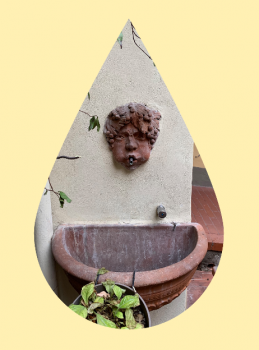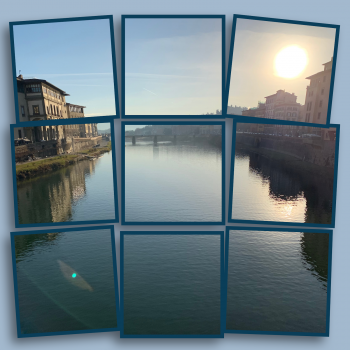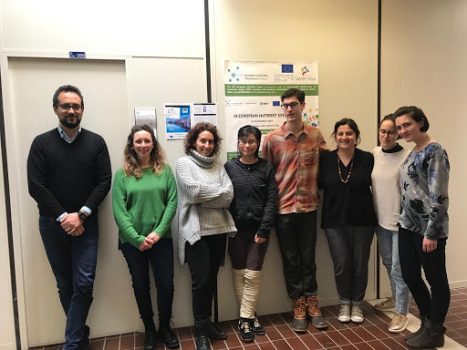By: Matt Chistolini ’21
Over the 2019 winter break, I spent ten days with Professor Tseng exploring the water climate in Italy. On our sojourn, Professor Tseng and I traveled together across the geographic spine of the country. Our journey started in the northern city of Florence and we traveled down the country to the port city of Naples. Along the way, we collected samples from public water fountains, met with colleagues from several Italian universities, and explored the wonderful world of Italian food and culture.
I started conducting research with Professor Tseng after taking her core water class in the spring of 2018. The class opened my eyes to the plastic water system endemic and motivated me to raise the further question as to what environmental impacts this might have. In the fall semester, with the constructive guidance of Professor Tseng, I conducted an experiment to understand on a deeper level how hydrophobic chemicals (particularly how personal care products and pharmaceuticals) bond to plastic strands. Working on this experiment was thrilling and motivated me to continue working on this project this coming summer. This summer, thanks to many of Professor Tseng’s connections in Italy and our information-gathering trip over winter break, I hope to continue this project in Ancona, Italy as I explore some connections between microplastics and wastewater.
Our journey started at the baggage gate in the Florence airport, gratefully meeting after hours of flight delays. Soon after, we settled in Florence for the night, and the next day I began gathering samples at public fountains scattered throughout the city.

I was provided with a map of the fountains, and from there it was a treasure hunt to collect water at each location. Not only did I enjoy traveling across the city in this manner, but I also gained a deeper understanding and appreciation than what would have been possible as a tourist. The fountains were located in both heavily trafficked parts of the city and more residential parts.
The main aim of obtaining water from public fountains in Italy is to understand historical patterns of the quality of the drinking water. Professor Tseng has been running this experiment annually for several years, hoping to observe and catalog any trends in the chemicals present in the public Italian fountains. This experiment aims to provide a metric for understanding water contamination in Florence.

The main aim of obtaining water from public fountains in Italy is to understand historical patterns of the quality of the drinking water. Professor Tseng has been running this experiment annually for several years, hoping to observe and catalog any trends in the chemicals present in the public Italian fountains. This experiment aims to provide a metric for understanding water contamination in Florence.
After collecting all the samples we needed from Florence, we took the Frecciarossa to Ancona where we met up with several academic colleagues who study microplastics at the Marche Polytechnic University. It was inspiring to learn about all of their different projects relating to microplastics and how the European and mainly Italian educational system works closely with companies to research and develop new technologies. It was shocking to hear from Professor Francesco Fatone, the project leader in Ancona, that almost no basic research was being conducted in the engineering department of Marche Polytechnic University. While in Ancona, our visit overlapped with the University’s recent shipment of Antarctic sea creatures. It was extremely exciting to see in person creatures that had never left the Antarctic climate.
Once we had finished learning about the projects that the Francesco Fatone’s team were involved with we headed back north to Bologna to spend the weekend. Bologna was an absolutely beautiful city, rich in history and art and quickly became one of the highlights of the entire trip. Over the weekend I visited several churches and a myriad of museums ranging from modern to very historic.
Our final stop on the journey was to the southern city of Naples to visit several professors and graduate students at the University of Naples. This university was an excellent opportunity to meet even more scientists interested in the wastewater and natural water systems. As the University of Naples is much larger than Marche Polytechnic University, I had the privilege to learn about many more projects with a much broader scope of focus of water issue.
I am incredibly thankful to Professor Tseng, the ENST Department and Colgate University for making this trip possible. I was able to take so much of what I learned in Italy over those ten days and bring it back to Colgate. I am beyond grateful for all of the opportunities I had to learn from professors and graduates students. One of the biggest takeaways from the entire trip was learning about the importance of international collaborations and how to develop professional academic networks. I had never explored this learning outcome prior to this trip but with this new found knowledge I hope to continue developing these skills as I explore water-related issues further.


